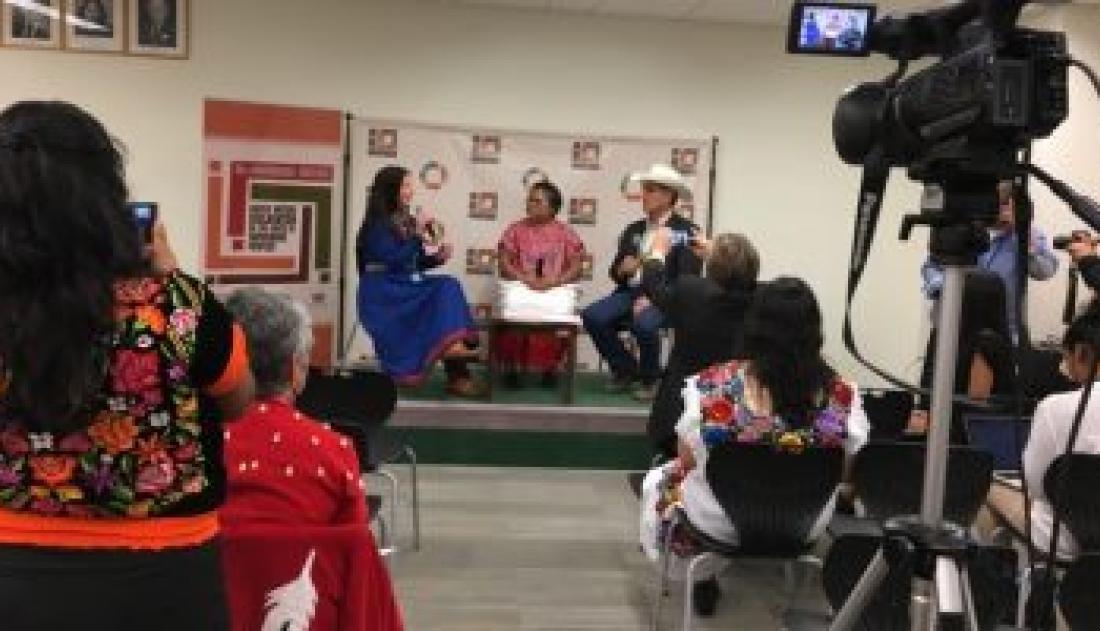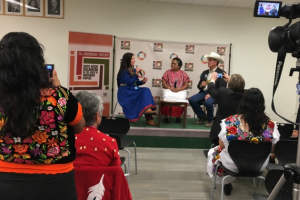
 The first-ever Indigenous Media Zone attracted dozens of Indigenous media producers during the annual session of the UN Permanent Forum on Indigenous Issues in New York.
The first-ever Indigenous Media Zone attracted dozens of Indigenous media producers during the annual session of the UN Permanent Forum on Indigenous Issues in New York.
The Indigenous Media Zone provided a much-needed work space for indigenous media producers and also featured live interviews, discussions and press conferences with human rights defenders and Indigenous experts. It was co-hosted by the Department of Public Information (DPI) and the Department of Economic and Social Affairs (DESA) in cooperation with Indigenous media organisations in the UN Correspondents Association lounge on the third floor of the Secretariat from 24 to 28 April.
“I very much welcome this space,” said Mariam Wallet Aboubakrine, the Chairperson of the UN Permanent Forum on Indigenous Issues, speaking at one of the panels in the media zone. “It is important for us Indigenous Peoples to have a platform to tell our stories in our own voices and through our own channels.”
Participants in the media zone included Indigenous radio and TV producers from Bolivia, Brazil, Colombia, Guatemala, Honduras, Kenya, Mexico, Nepal, Nicaragua, Norway, the Philippines, South Africa, Sweden, and the United States, among others.
Live interviews and discussions took place with Indigenous experts from countries (Australia, Bangladesh, Belize, Canada, Ecuador, Finland, Mali, Peru, Russia, Tanzania and Uruguay) on topics ranging from the tenth anniversary of the UN Declaration on the Rights of Indigenous Peoples to land rights and natural resources, violence against women, the Sustainable Development Goals, and issues affecting Indigenous youth.
Five discussions—one per day—were streamed live on UN DESA’s Facebook page and can be viewed HERE.
Some twenty other interviews and discussions were streamed on Facebook by Notimia, a news agency of Indigenous and afro-descendant women, who partnered with DESA and DPI to organize the Indigenous Media Zone: https://www.facebook.com/pg/notimia/videos/?ref=page_internal.
 Welcome to the United Nations
Welcome to the United Nations


